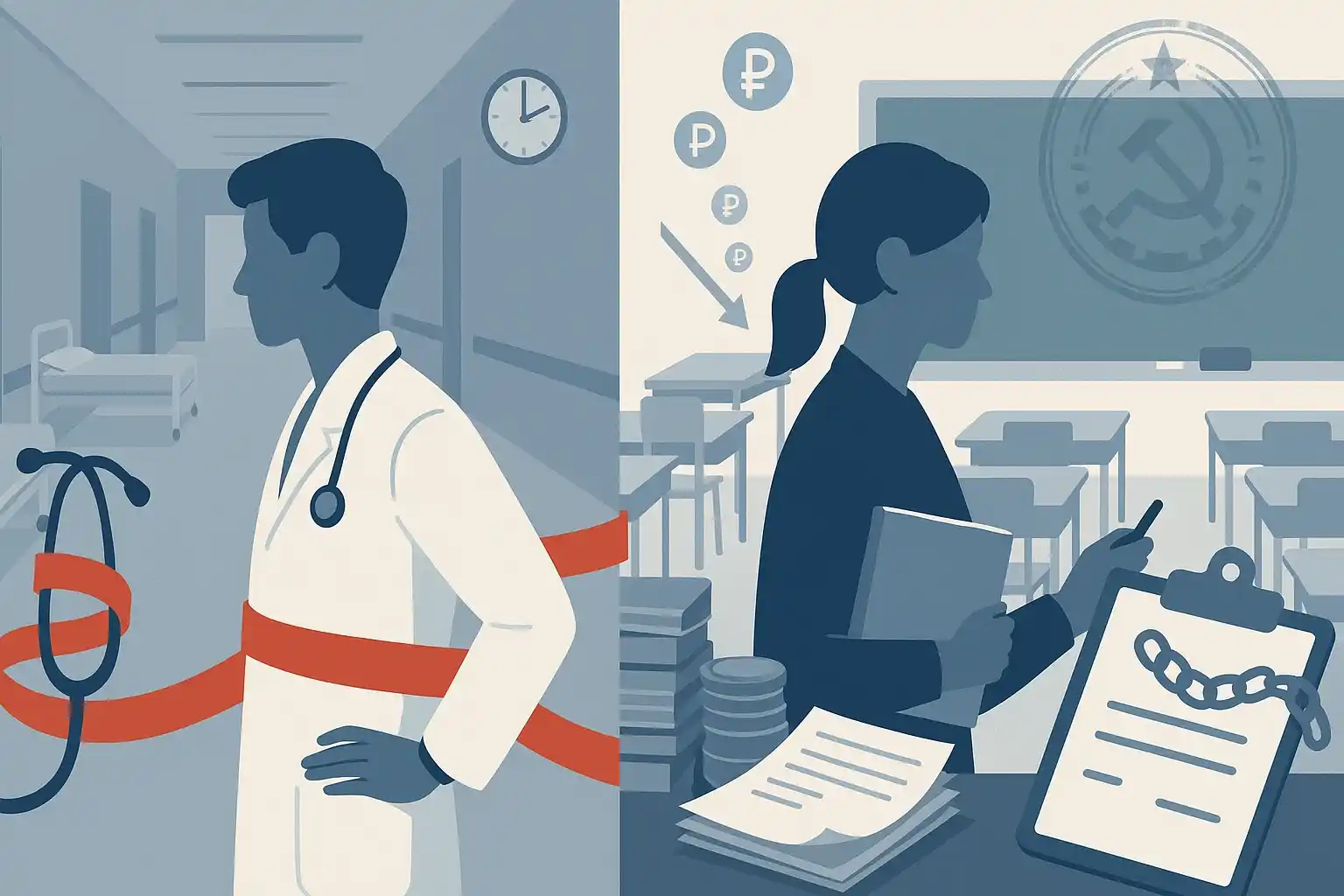In the face of a chronic labor shortage, officials are opting for ever tougher yet largely ineffective measures. The Health Ministry is preparing a sweeping reform: all state-funded places at medical universities and colleges will be shifted to “targeted training”—graduates will be obliged to work in their specialty for five years or more.
Healthcare Reform by Decree: A Return to Soviet-Style Mandatory Service
“This is a full return to Soviet practice, which proved ineffective and inflicted damage by fostering stagnation in Soviet healthcare. Russian officials are stepping on the same historical rake again,” says the dean of a Moscow medical university, speaking on condition of anonymity.
Formally, the move is meant to address the acute shortage of doctors and medical staff in Russia’s healthcare facilities.
As of early 2025, official data show a shortfall of more than 23,000 physicians and over 63,000 mid-level medical personnel. The Accounts Chamber and the Health Ministry cite differing figures, but experts are sure the real deficit is at least 1.5–2 times higher. By 2030, the situation could worsen two- to threefold—effectively pushing the system toward a critical breakdown in the provision of medical services.
The causes of the staffing crisis are obvious: low pay and heavy workloads. “Even the official numbers are enough to see the system is bursting at the seams. In reality, it’s worse,” notes one source. “Doctors and medical staff are leaving state institutions en masse for private and departmental clinics, and signing contracts to work in the so-called ‘new territories,’” says the head of healthcare in a central Russian region.
Education Mirrors the Crisis: Low Pay, Heavy Loads, and a Talent Exodus
Schools face similar problems. The education system employs more than 1.3 million people, yet, according to SuperJob, the teacher shortage may reach 500,000—the number of open vacancies across the country. More cautious estimates put it at 100,000, but even that is critical. “People are leaving for business, the defense industry, and the civil service. There’s little motivation to work in schools—low pay, high workloads, mountains of paperwork, and constant complaints from administrators and parents,” says the head of a regional teachers’ union.
Targeted training with mandatory service is already used—selectively—in pedagogical universities. Now the government intends to extend this approach to medicine. “That means neither doctors nor teachers will see substantial pay rises. The state plans to plug the gaps through coercion,” the source explains.
This scheme has other consequences. Graduates who know they face several years of compulsory work in state institutions for minimal pay lose motivation for professional growth. Corruption may intensify, further eroding work ethics. In effect, a late-Soviet model is taking shape: low labor productivity, chronic staff shortages, and systemic degradation.
On the ground, it’s already visible: in many regions, you can get halfway decent medical care, as a rule, only at private clinics.
“The officials overseeing the social sphere see no real alternatives. Administrative pressure will only increase. But without raising salaries—by at least one and a half to two times—the situation will not change. And that, for now, isn’t even on the table,” one interlocutor concludes.
“We have an absolute shortage of sound decisions against the backdrop of a critical shortage of personnel. Medicine and schools have become zones of lost motivation; doctors and teachers are professions that seem to be in plain sight but are, in fact, broken by administrative pressure. After COVID, the medical profession was lionized in Russian media, yet the authorities allowed deep stratification between doctors and other medical staff, created conflict zones over pay evaluation, raised quotas, and turned the clinician into a hostage to bureaucratic demands,” says the head of a healthcare union in Russia’s Central Federal District.
Teachers are in the same boat. “Officials have turned them into social workers, effectively state agents for ‘upbringing.’ Educators have lost their original mission; they’ve become caretakers. That has triggered a mass exodus from schools,” says the head of a regional teachers’ union.


















